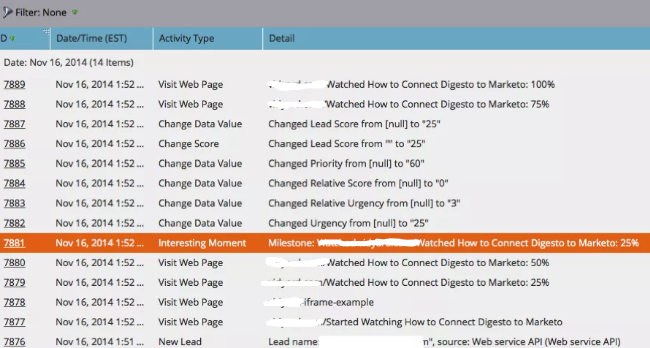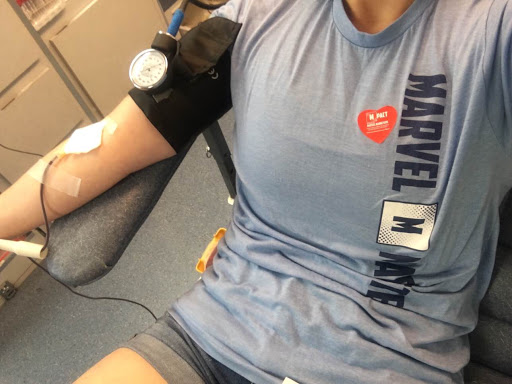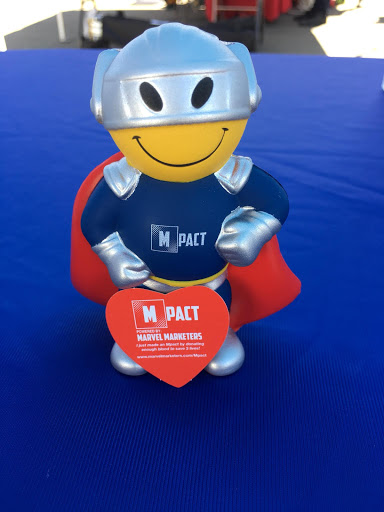Wouldn’t it be nice if you knew which visitors to your website, which subscribers on your email list, and which followers on your social media pages were most ready to do business with you?
If you think you need a crystal ball to figure this out, think again. What you really need is a way to measure engaged intent.
What exactly is engaged intent?
It’s a demonstrated propensity to buy. By looking for 4 specific signals, you can determine whether to engage more with a lead, which content is most relevant to the lead’s needs, and when/if you should pass the lead to your sales team.
What signals make up the engaged intent puzzle?
1. The lead’s appetite for information
By measuring the lead’s engagement with your content, you can determine how strong his appetite is. There are two important metrics to help determine this—the time the lead has spent on your website and the amount of content he has consumed.
For example, a lead who spends 5 minutes browsing your website shows signs of a stronger engaged intent than a lead who only spends 2 minutes browsing your site. Or, a lead who has read 10 of your blog posts in the last month clearly has a stronger appetite than the lead who only read one blog post.
2. The lead’s specific interests
When the lead shows serious interest in a specific topic, that’s a stronger engaged intent signal than a lead who appears to be casually browsing content across several different topics. By zeroing on one specific topic, you can infer what your lead’s pain point is—and once you know that, you can start feeding him content that aligns with it.
This doesn’t mean you abandon a lead who has a strong appetite for multiple topics. It simply means that the roadmap becomes clearer once you know exactly what the lead is interested in.
3. The lead’s willingness to learn from YOU
Just because a lead has consumed some of your content doesn’t necessarily mean he considers you to be the end-all-be-all expert. It’s possible that he’s surfing for information from a variety of organizations.
So how do you know if you’re just one of the many or if he thinks you’re something special?
Turn to your marketing automation platform for an overall look at what your lead has been up to. In Marketo, you can dig through the Lead Activity Log. Created for each known lead in your database, the Lead Activity Log will show all of the engagement the lead has had with you—including things like email opens, whether or not he’s subscribed to your blog, and details about any forms that he has filled out.

You don’t have to do this manually for each lead, though. With a lead scoring strategy that’s focused on engaged intent, your marketing automation platform can tell you which leads are most ready to buy.
4. The lead’s self-education progress
If you have a solid content strategy, a lead can learn a lot about your industry, your expertise, and your company without speaking to anyone. The key, though, is how deep his self-education goes. This is where you need to cross-check the content listed in his Lead Activity Log and determine which area of the funnel it aligns with.
For example, a lead that reads lots of your top-of-funnel content (like blog posts and webinars) probably doesn’t have as much engaged intent as the lead who has consumed your lower-funnel content (like customer reviews, case studies, and product specifications). The deeper the self-education, the stronger the signal that he’s getting ready to pull the purchase trigger.
This doesn’t mean that the top-of-funnel consumer is a lost cause, though. It simply means he needs a little more guidance before he’s ready to buy.
Bottom line—don’t spend your sales team’s time cold-calling and reaching out randomly. Instead, put together the pieces of the engaged intent puzzle and figure out which leads want to hear from you most.




